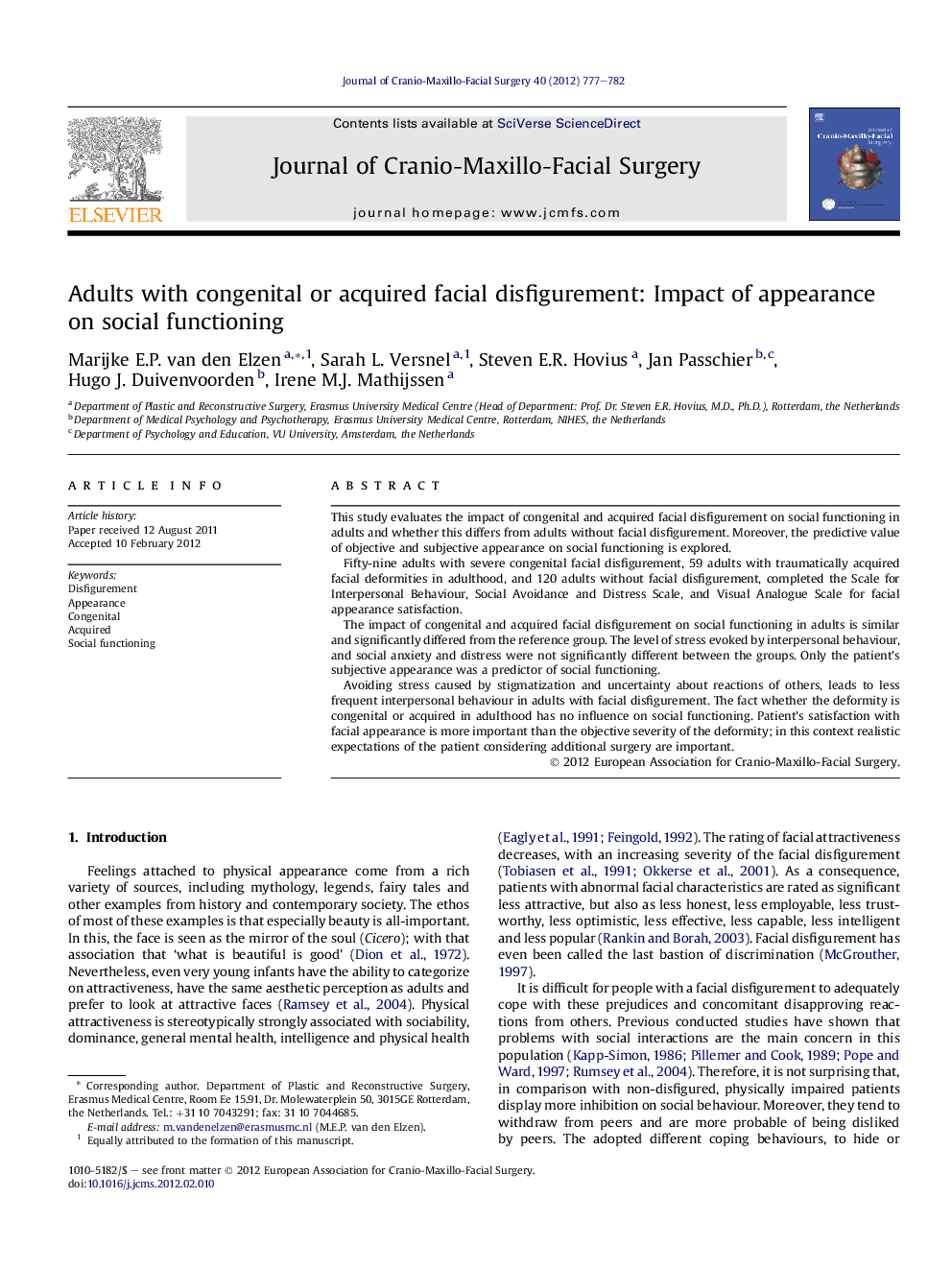| Article ID | Journal | Published Year | Pages | File Type |
|---|---|---|---|---|
| 3143384 | Journal of Cranio-Maxillofacial Surgery | 2012 | 6 Pages |
This study evaluates the impact of congenital and acquired facial disfigurement on social functioning in adults and whether this differs from adults without facial disfigurement. Moreover, the predictive value of objective and subjective appearance on social functioning is explored.Fifty-nine adults with severe congenital facial disfigurement, 59 adults with traumatically acquired facial deformities in adulthood, and 120 adults without facial disfigurement, completed the Scale for Interpersonal Behaviour, Social Avoidance and Distress Scale, and Visual Analogue Scale for facial appearance satisfaction.The impact of congenital and acquired facial disfigurement on social functioning in adults is similar and significantly differed from the reference group. The level of stress evoked by interpersonal behaviour, and social anxiety and distress were not significantly different between the groups. Only the patient’s subjective appearance was a predictor of social functioning.Avoiding stress caused by stigmatization and uncertainty about reactions of others, leads to less frequent interpersonal behaviour in adults with facial disfigurement. The fact whether the deformity is congenital or acquired in adulthood has no influence on social functioning. Patient’s satisfaction with facial appearance is more important than the objective severity of the deformity; in this context realistic expectations of the patient considering additional surgery are important.
